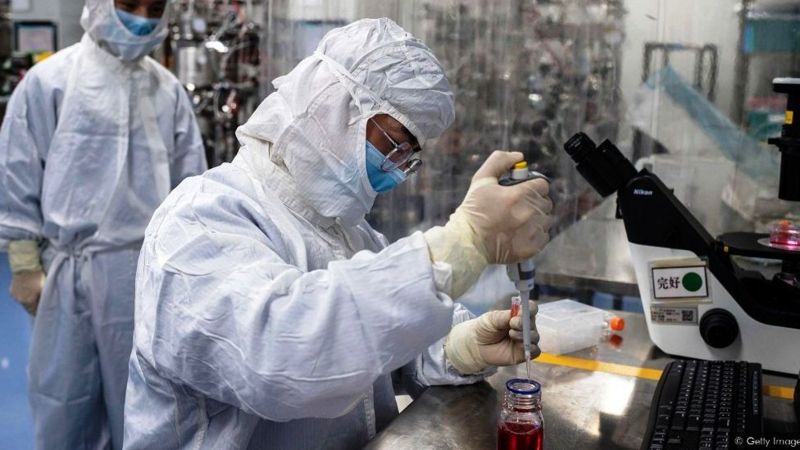Concerns about the new type of coronavirus Omicron are now being seen around the world.
Experts say that this variant of coronavirus has caused at least 32 mutations (genetic mutations) – the scientific name of which is B.1.1.529.
The reason scientists are most concerned about Omicron is that it can spread very quickly and easily and bypass the human body’s immune system – making vaccines less effective against it.
The easier the coronavirus spreads, the more infected it will be – and as a result, the number of serious illnesses and deaths in Covid-19 will increase.
Preliminary data further show that there is a higher risk of re-infection with Omicron. This means that those who have been infected with coronavirus before – although they are less likely to be infected a second time – have a higher risk of re-infection with omicron.
Millions of people around the world have already been vaccinated against coronavirus. Uncertainty has been created about how safe they are now. Pfizer, AstraZeneca, Modern, Synovac, Sputnik – how effective will these vaccines be against Omicron?
These are the reasons for fear of Omicron. Needless to say, viruses are constantly evolving, constantly evolving through mutations.
The first coronavirus to spread in Wuhan, China, is no more. Delta and beta variants have removed him.
There were 10 mutations in the Delta variant and 6 in the beta. And the number of ‘unique’ mutations in Omicron is much higher – a total of 26. This shows however tough it will be to manage.
“Omicron symptoms are very mild”
The Omicron virus was first identified in South Africa last Thursday. In just a few days, infected people have been identified in at least 11 countries around the world.
Doctors in South Africa say the new type of covid infection, called Omicron, has so far shown mild symptoms in patients as countries begin to impose new restrictions to prevent it from spreading worldwide.
The head of the South African Medical Association, Angelique Quetzi, told the BBC that there had been a slight increase in the number of cases in the country so far – but that most of those infected with Omicron did not need hospital treatment.
He added that the new species has not been identified so far, perhaps because its symptoms are mild.
In an interview with the BBC on Sunday, Ms. Quetze said the first victim was a man in her 30s. And he was talking about feeling very tired for two days.
“She had a headache, a headache, but no cough or loss of taste. I tested her because it seemed unusual to me. I tested her and everyone in her family was positive, but the others in the family were fine. That’s why It’s a mild symptom. “
“One day after that I saw a few more patients. They were all positive. After that, I alerted the government committee on vaccination, of which I am a member.”
“What we are seeing in South Africa is that the symptoms of everyone infected are very mild in our eyes. We have not hospitalized anyone. I have spoken to another associate doctor. He has painted a similar picture.”
Ms. Quetzi, however, says that although so far the symptoms of Omicron are very mild – the picture may change in a couple of weeks.

The picture of how deadly Omicron is is not yet clear
Speaking to several other South African physicians and specialists, the Washington Post reports that the picture is not yet clear as to exactly how serious illness can occur in Omicron.
According to a doctor, at first, the symptoms of the victims were mild. Another doctor said he had seen some young and old patients with moderate to severe illness.
Alex Seagal, a faculty member at the Africa Health Research Institute, told the Washington Post:
“There is no indication yet that it will do anything completely different,” he said.
Global risks are extremely high
The reality is – not much is known about how deadly Omicron can be. Scientists say it will take another two to three weeks to get the results of the experiments they are conducting.
Every day, the news is coming out that Omicron-infected people are being found in new countries.
Countries – which had relaxed, or were about to relax – coronavirus restrictions, are now imposing new aviation restrictions, enforcing masks, and discouraging public gatherings.
Government officials in these countries say they are taking the time to impose some restrictions in advance to learn more about how dangerous Omicron can be.
The World Health Organization (WHO) said in a statement on Sunday that the risk of Omicron spreading worldwide was “extremely high”. (fresh bazar)
‘Vaccines will be at least somewhat effective’
In South Africa, doctors have so far found, on the basis of a limited sample, that ‘break-through infections’ – meaning those who have already been vaccinated – are more likely to be infected with Omicron.
But Ian Sun, a South African infectious disease specialist and member of the government’s advisory committee on covid, says the initial data shows that the vaccine is still effective – because most of these in hospital area unit susceptible.
Experts say that while the effectiveness of the vaccine against Omicron has diminished, it is not certain that the vaccine will be completely ineffective – that its effectiveness will remain somewhat intact.
So, they say, getting vaccinated, wearing a mask, are the best way to stop the spread of Omicron.
For more details Click Here